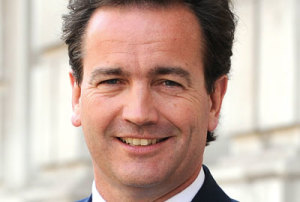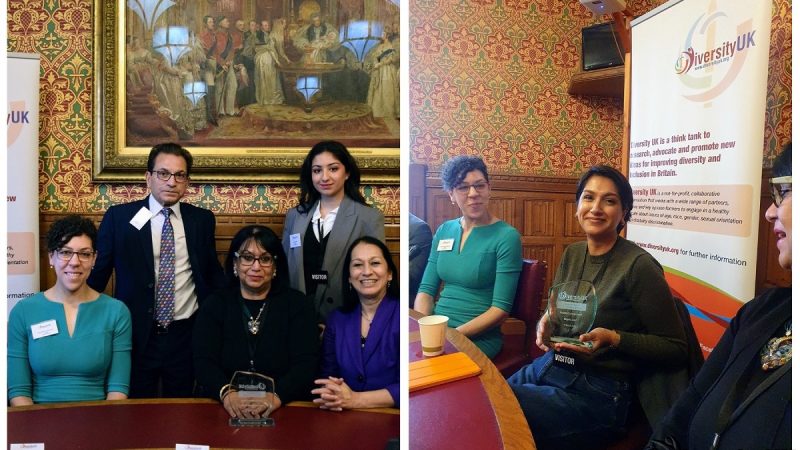Public Administration Committee criticises ‘obscure’ appointments process
 The Public Administration Committee's first report published on 10th November 2014 is highly critical of the way in which individuals are appointed to the boards of public bodies, stating "How individuals are appointed to the boards of public bodies also remains in many cases obscure. So is the basis for deciding whether or not to reappoint a person. Public appointments are not sufficiently transparent, representative, or accountable." The report also criticises the lack of diversity in Public Appointments saying "the people selected to fill public appointments are unrepresentative of the wider population."
The Public Administration Committee's first report published on 10th November 2014 is highly critical of the way in which individuals are appointed to the boards of public bodies, stating "How individuals are appointed to the boards of public bodies also remains in many cases obscure. So is the basis for deciding whether or not to reappoint a person. Public appointments are not sufficiently transparent, representative, or accountable." The report also criticises the lack of diversity in Public Appointments saying "the people selected to fill public appointments are unrepresentative of the wider population."
The report reccommends that "in addition to listing those appointments which are regulated by the Commissioner for Public Appointments, Government should publish a list of unregulated public appointments, and set out why some appointments are regulated and the rest are not. The Government and the Commissioner for Public Appointments should clarify who is involved in a public appointment, at what stage, and whether they advise or decide." The report also states " Significant reforms of public bodies have been implemented, but have not been coordinated with Civil Service reforms and health reforms. We are unconvinced that the reforms have in fact increased accountability. " The committe heard evidence from a number of civil servants, experts and the former Minister for Civil Society Mr Nick Hurd MP.
Given below is an extract from the report:
Public appointments are made when people are recruited to public bodies as members of committees or to sit on the board. Who they are and how they are chosen form an important part of the accountability of arm's-length Government. Getting it right is key to efficiency, effectiveness and strong relationships between Government and public bodies. The Commissioner for Public Appointments, Sir David Normington, regulates the processes by which Ministers make appointments to the boards of some, but not all, national and regional public bodies in England and Wales. Supported by the Office of the Commissioner for Public Appointments, his duties include monitoring compliance with the appointments Code of Practice, investigating complaints about appointment processes, and promoting equal opportunities and diversity in public appointments procedures.[130]
45. While most public appointments are successful, we heard complaints about delays and difficulties in finding suitable people, and inadequate pay, though many positions are unpaid.[131] The prospect of reputational risk, in particular when appearing before a select committee, is also off-putting for some.[132]
Diversity
51. The people selected to fill public appointments are unrepresentative of the wider population. The Commissioner of Public Appointments has a remit for promoting diversity in the procedures for public appointments. Of all the people appointed or reappointed to public bodies in 2012-13, 36% were women, 5.5% were from black or ethnic minority backgrounds, and 5.3% had disabilities.[145] Most were aged 46 to 65 (75%), with only 1.6% aged 35 or under.[146] The Government aspires to 50% of new public appointees being women by the end of this Parliament.[147] Nick Hurd MP told us there has been some progress on gender, but the overall trend is downward in the proportion of women being appointed since statistics started being collected in 2001-02.[148] In September 2014 the Government published a Talent Action Plan for Civil Servants, but not the public servants who work in public bodies, to encourage better gender balance and diversity.[149] Actions the Government is taking to increase the diversity of public appointees include increasing awareness of appointments, holding events and suggesting improvements to the language in job specifications.[150] The Government's Action Plan contains one line about what it is doing to proactively approach potential candidates:
The [Centre for Public Appointments] is encouraging applications from candidates by contacting potential candidates about suitable opportunities.[151]
52. Nick Hurd MP argued to us that an end to the presumption of reappointment will bring greater diversity.[152] He did not offer any evidence to back this assertion. Some feel that, since the disbanding of the NHS Appointments Commission in 2010, there has been a gap in identifying and encouraging high quality applicants from across the community to apply for non-departmental public body board positions.[153] In 2011 Sir David Normington told us that "Government departments are almost discouraged from taking responsibility for themselves for improving public appointments and getting the best outcomes".[154] We have previously expressed our concern that the quality, range and diversity of candidates applying for senior public appointments may be adversely affected by the imposition of pay caps.[155]
53. Public appointments are not sufficiently transparent, representative, or accountable. Encouraging good people to apply is a challenge, which is alarming given the central importance of appointments to the effectiveness and accountability of public bodies. The recent policy change, from an assumption of reappointment to an assumption of non-reappointment, is a major one which has been little discussed, and which potentially politicises appointments. The Government's new position could reduce the willingness of people to apply for tough appointments as they may feel they will not have the time needed to see reforms through, especially if there is a change in Government during their term.
54. The Cabinet Office, which publishes a list of regulated public appointments, should also publish a list of unregulated public appointments and set out the rationale by which some appointments are regulated and some are not. In the interests of transparency the Cabinet Office should ensure that the sponsoring department clarifies who is involved in a public appointment, at what stage, and whether they advise or decide. This means publishing new factual information in greater detail than is currently available, including an explanation of the rationale for these arrangements.
55. The Cabinet Office should publish the reasons for ending the presumption in favour of default reappointment and review the wisdom of the new arrangement. To address the issues raised by Sally Morgan, departments must make clear to appointees at the outset whether their appointment is intended to be for one or more than one term.
56. Organisations making public appointments must take responsibility for seeking out able people from under-represented backgrounds and groups, as well as making the application process straightforward and fair. The Cabinet Office in turn should strengthen its public appointments diversity plan, holding arm's-length bodies to the same ambitious standards and firm steer as in the Civil Service Talent Action Plan.
57. The Cabinet Office needs to demonstrate greater internal consistency, stability and internal collaboration in public appointments. Responsibility for public appointments policy lies in its Propriety and Ethics Division, while responsibility for the governance of public bodies lies in the Efficiency and Reform Group. The Cabinet Office should bring together the role of the Centre for Public Appointments and the Public Bodies Team, to encourage a more coordinated and coherent policy in this area.
Click here to read the full Public Administration Committee Report (4th November 2014)




